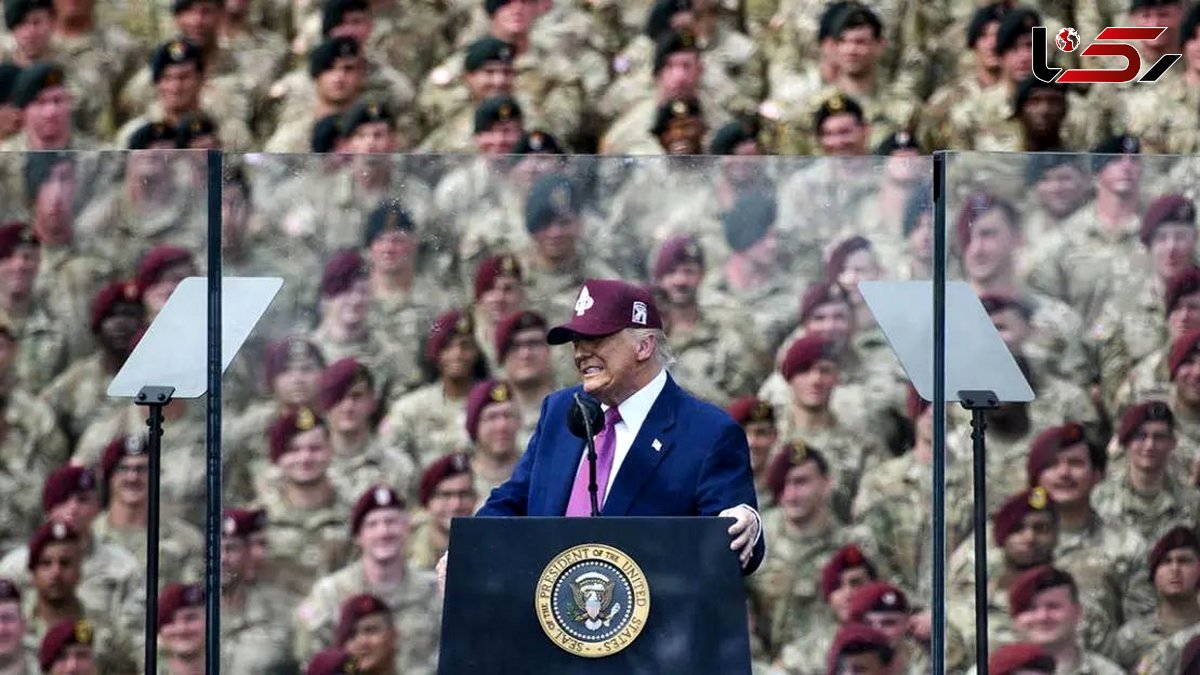Why Some Americans View Donald Trump as a True Enemy of the United States
Rokna Political Desk: Donald Trump, by politicizing the military and employing it for his own political purposes, poses a serious threat to American democracy. Could his actions endanger the legacy of the United States’ founding fathers?

According to Project Syndicate, since the establishment of the United States 250 years ago, it has been consistently emphasized that the U.S. military has never become a threat to democracy. However, this principle may now be changing, as President Donald Trump seeks to use the country’s armed forces as a tool against his political rivals — individuals he labels as “domestic enemies” of America.
The U.S. military and security institutions have never before been drawn into domestic political affairs of this kind — a situation unprecedented since the constitutional crisis of 1867, when then-President Andrew Johnson and the Republican-controlled Congress clashed over the reconstruction of the United States. By deploying American troops in several cities across the country, Trump presents a direct and explicit threat to American democracy.
The founding fathers of the United States harbored significant concerns about the presence of uniformed forces within the nation — a concern reflected in various provisions of the U.S. Constitution. For instance, in 1807, Congress passed a series of laws limiting the president’s authority to use military forces for domestic purposes. Under these laws, a president could deploy the military only if state governors requested assistance or in cases of armed rebellion, foreign invasion, or violent violations of citizens’ rights across different states.
Domestic use of the U.S. military was further restricted by an amendment in 1878, which prohibited military intervention in the enforcement of domestic law without congressional authorization. Such laws only permit military use in specific, extraordinary circumstances. Nevertheless, Trump has openly employed U.S. armed forces under the declared pretext of supporting immigration authorities and law enforcement — and appears unwilling to halt this practice.
He has done so even as governors from states such as California, Oregon, and Illinois have rejected military intervention in their jurisdictions. There has been no indication that other legal frameworks justify such deployment, meaning Trump and his allies are effectively deploying the U.S. military illegally in various American cities.
Trump has also refrained from invoking the president’s limited legal authority to broadly interpret conditions of rebellion or civil unrest within U.S. territory. This has led to widespread political and legal objections against him. The question now is how America can find a way out of this unprecedented constitutional and political crisis.
Some experts argue that U.S. generals must remember their essential duty — to avoid being drawn into the political games of figures such as President Donald Trump and Defense Secretary Pat Hegseth. So far, they appear to be taking the correct course.
However, the reality remains that the U.S. military cannot protect Americans from the political leaders they have elected. In the American system of governance, solutions to political problems must be civilian and non-military by nature. Most importantly, Congress must exercise its constitutional powers under Article I to restrict Trump’s broad interpretation of executive authority. Congress must reassert that it alone holds the power to address such issues.
Recent developments and Trump’s conduct — along with that of his allies — also make it clear that Congress should consider new amendments to prevent future presidents from abusing executive power for personal or political gain. At this juncture, state governors in the United States should file legal complaints against the federal government for violating their constitutional sovereignty. The nation must prevent politicians from undermining the 250-year-old American tradition of keeping politics and the military separate.
Send Comments